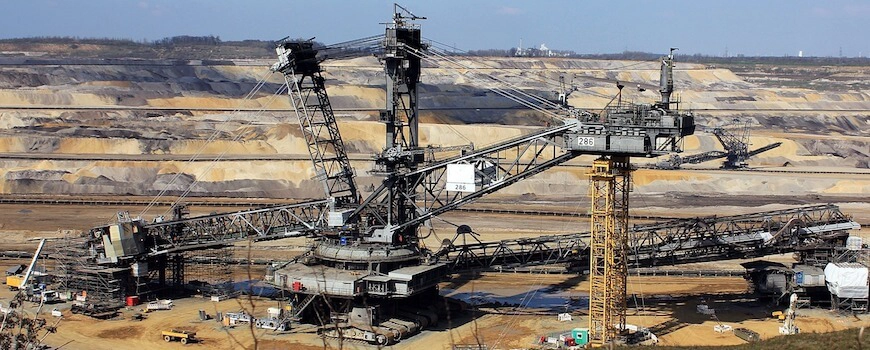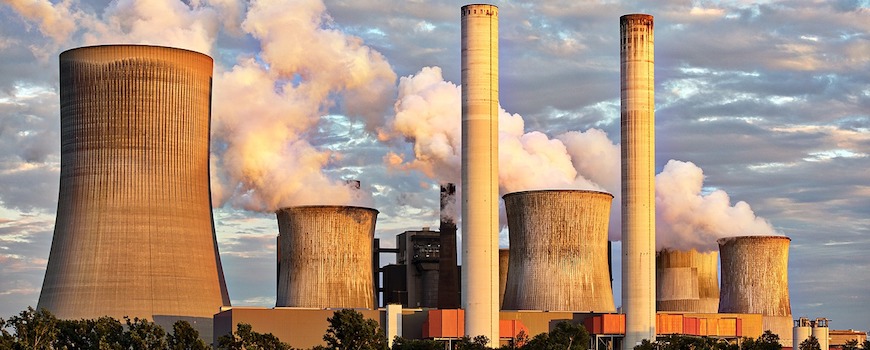
A couple of the most popular questions about fossil fuels. Both energy sources have their advantages and disadvantages, but natural gas is indeed the cleanest non-renewable energy source – based on greenhouse gas emissions and their impact on the environment and climate change.
Read our article about natural gas.
The global electricity demand and thus the energy that comes from burning fossil fuels is rising. Renewable energy (solar and wind power stations) is not developed enough to satisfy this increasing demand, and natural gas can be the ‘bridge’ between non-renewable and renewable energy because its carbon emissions are much lower than other fossil fuels.
Natural gas vs coal: carbon emissions
Natural gas, coal, diesel: these fuels emit different amounts of carbon dioxide. According to the U.S. Energy Information Administration, natural gas emits almost 50% less CO2 than coal. Different types of coal produce different amounts of CO2 while burning.
Pounds of CO2 emitted per million British thermal units (Btu) of energy for various fuels
|
Coal (anthracite) |
228.6 |
|
Coal (bituminous) |
205.7 |
|
Diesel fuel and heating oil |
161.3 |
|
Gasoline (without ethanol) |
157.2 |
|
Propane |
139.0 |
|
Natural gas |
117.0 |
Source: eia.gov
Natural gas also emits less carbon dioxide when combusted than fuel. Considering only tailpipe emissions, natural gas is 15-20% cleaner than gasoline when it is burned.
Coal vs natural gas: other environmental effects

However, not only the heat-trapping gas emissions from smokestacks and tailpipes have a bad environmental effect, and maybe natural gas extraction has a bigger impact on the environment than coal does. Natural gas can be released with drilling and fracturing. Vertical and horizontal drilling do not have that big effect on the eco-systems, but hydraulic fracturing and acidizing have a very pollutant side-effect: toxic wastewater.
It can leak into the ground and can break wildlife habitats. Establishing a pipeline system to transfer natural gas often leads to deforestation. Read more about this topic: Natural gas environmental impact.
On top of that, natural gas does not emit that much CO2 into the atmosphere but has a bigger methane emission (which is 34 times stronger greenhouse gas than CO2 over 100 years), thus in a short time, combusted methane is a more significant greenhouse gas than carbon dioxide. Methane mostly leaks to the atmosphere while natural gas is extracted.
More about the greenhouse gas effects: Is natural gas environmentally friendly?
Coal-fired power plants emit not only carbon dioxide: other toxic gases impact people's health condition, these gases can lead to asthma or even to heart attack. Burning coal also comes with No and SO2 emissions, and these are linked to health problems such as asthma, lung cancer, and heart disease.
Coal mining also changes the landscape: deforestation and devastation of water quality are side-effects in this case.
Is natural gas cheaper than coal?
The cost of renewable energy is decreasing every year, thus renewable energy has become the main competitor for natural gas. Coal mines are becoming empty every day: according to studies, coal will be out of supply before natural gas.
Because of that, coal prices cannot be competitive enough in this growing market. While the price of natural gas (and solar power) is decreasing, the price of coal is still up.
According to Lazard, coal prices are moving between 60 and 143 USD (/megawatt-hour), while the price of natural gas is between 41 and 74 USD.
Summary: why is natural gas better than coal?
Global energy demand will continue to rise in the next decades, while the technology of renewable energy is still not ready to supply it fully. Natural gas is the cleanest fossil fuel to use, while coal has one of the biggest negative impacts on the environment.
The natural gas is:
- Cheaper
- Reliable
- Has lesser CO2 emissions
